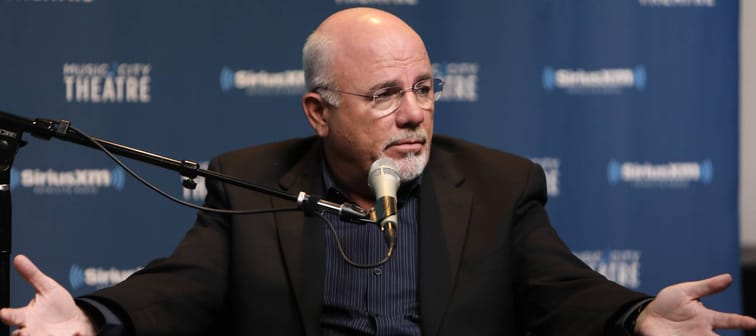Step 1: Create a budget
Ramsey’s first step to becoming a millionaire is to create a budget. Outline your income and expenses, and then note the difference. Once you’ve done this, create a monthly budget that you can live by. According to Ramsey, to be successful, every dollar should be tracked and accounted for before the month even begins.
“Where I see a lot of people screw up is that they don’t live on less than they make,” explains Ramsey.
He points out that wealthy people don’t “blow all their money on stupid stuff.” Instead, they shop with coupons, don’t carry a balance on their credit cards and spend $200 or less a month eating out. (At least, the wealthy people that didn't earn their money as influencers — people invested in their image and invested in getting you to model their image.)
Empower your investments with Qtrade
Discover Qtrade's award-winning platform and take control of your financial future. With user-friendly tools, expert insights, and low fees, investing has never been easier.
Start Trading TodayStep 2: Get rid of debt
In order to build wealth, you need to get rid of debt — particulary high-interest debt.
There are several ways to do this, but Ramsey suggests the snowball method. According to experts, the debt snowball method requires you to pay off the smallest debt first, then slowly repay all money owed, until the last debt to repay is the largest debt you owe. This method is different than the avalanche method — a debt repayment strategy that focuses on repaying your highest-interest debt first, before tackling the next high-cost debt, until all debt is repaid.
Ramsey prefers the snowball method over the avalanche method because he believes it’s better for morale. The idea is that you're more likely to stick to the task of repaying debt if you feel motivated — and successfully repaying a debt is great motivation to repay another debt.
Step 3: Build an emergency fund
With a budget in place and your debt paid off, you should now have extra funds that you can set aside in an emergency fund. Creating an emergency fund should be a priority according to Ramsey, as it allows you to avoid costly debt should you run into financial troubles. For instance, if you experience a job loss, a medical emergency or a large homeowner expense, such as a broken furnace, this emergency fund can help you avoid costly debt.
The amount set aside in an emergency fund will differ from person to person, based on living expenses. Many experts agree it should be enough to cover all your living costs for three to six months.
According to Ramsey, an emergency fund should be prioritized over investing because otherwise, should you need those emergency finances, you’ll just end up taking them from your investments anyway.
Unexpected vet bills don’t have to break the bank
Life with pets is unpredictable, but there are ways to prepare for the unexpected.
Fetch Insurance offers coverage for treatment of accidents, illnesses, prescriptions drugs, emergency care and more.
Plus, their optional wellness plan covers things like routine vet trips, grooming and training costs, if you want to give your pet the all-star treatment while you protect your bank account.
Get A QuoteStep 4: Invest
Finally, with an emergency fund in place, you can start to invest. Ideally, you should be investing 15% of your gross income into retirement accounts, Ramsey says. Why? Because investing is where your earned money can make money. Just be careful, warns Ramsey. It's easy to get distracted with market trends and equity cycles. Instead, focus on consistency, low fees and the long term.
To get started, consider opening an online trading platform with a brokerage that offers a robust set of tools for beginners and investors with an appetite for information, tips and insight on investment strategies. For instance, CIBC Investor's Edge built a robust library of educational tools. Use CIBC Investor's Edge both online and through their mobile trading platform and enjoy low commissions — plus get up to $100 in commission-free options until October 31, 2024.
Bottom line: Is Dave Ramsey's advice realistic?
While these four steps seem pretty straightforward in theory, that’s not necessarily the case in reality. Over time, Ramsey will point out that the key to building wealth is investing early — an ideal situation that doesn't work for many people. Still, for anyone interested in how to become rich, these four basic steps offer a solid foundation for financial freedom.
Trade Smarter, Today
Build your own investment portfolio with the CIBC Investor's Edge online and mobile trading platform and enjoy low commissions. Get 100 free trades and $200 or more cash back until March 31, 2025.








